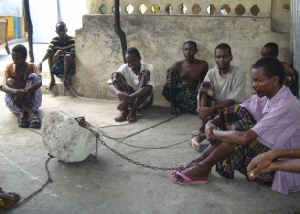Health News of Monday, 8 February 2016
Source: GNA
Let's treat mental patients with human dignity - Dr. Adomako
Dr. Fred Adomako, Deputy Ashanti Regional Health Director, Clinical Care, has advised the public to treat mental health patients with human dignity to assist speed up their recovery.
He said their rights must be respected and should not be subjected to any form of violation.
He announced that 45 health facilities in 29 out of the 30 districts in the region were now actively engaged in mental health programmes as part of efforts to decentralize mental health care.
Dr. Adomako underlined the determination of the regional health directorate to continue take appropriate steps to ensure access to quality care and responsiveness to people’s needs, respect their values, choices and preferences.
He was addressing the media in Kumasi as part of activities to mark international epilepsy day and awareness creation on dignity in mental health.
The day has been set aside and observed in more than 120 countries across the world, every year, to highlight problems faced by people with epilepsy, their families and care givers.
This year’s celebration was on the theme, “Epilepsy is more than seizure”.
Dr. Adomako stated that about 50 million people globally are estimated to be suffering from epilepsy – ranking it among the most common neurological diseases.
He expressed deep worry about the rising cases of the disease in the region, saying, 1,713 cases were recorded, last year, compared with the 2014 figure of 1,607.
Epilepsy, he noted, was chronic but neither infectious nor a spiritual disease and therefore encouraged patients to seek medical help.
He added that “an epileptic can perform as effectively as any individual when on anti-epileptic drugs hence should not be stigmatized or segregated”.
Dr. Awudzi Yeboah, Deputy Director of Public Health, entreated the media to join the crusade to educate the public on the disease, adding that awareness creation could help control stigmatization of mental health patients.
Entertainment










